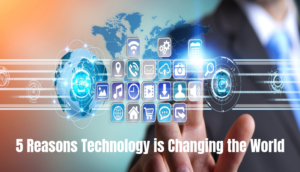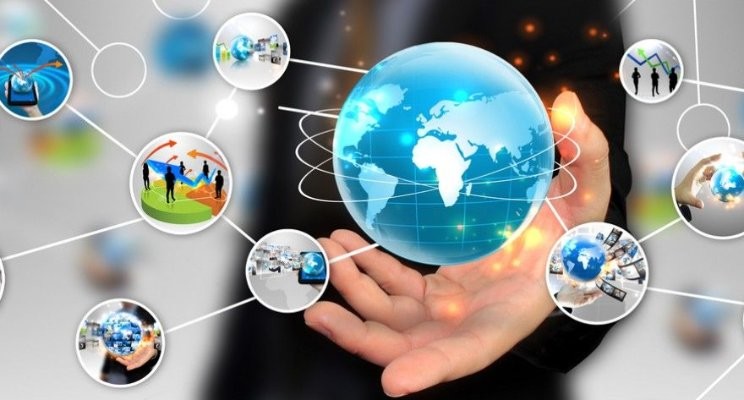In today’s fast-paced world, technology touches almost every aspect of our lives. From the smartphones we carry to the way we work and interact, technology has become inseparable from modern living. But what exactly is general technology, and how is it shaping the world as we know it? This article will explore the impact of technology on communication, healthcare, education, business, and more. We’ll also address some frequently asked questions to provide a deeper understanding of the subject.
What is General Technology?
General technology refers to the tools, systems, and processes designed to solve problems, enhance human capabilities, and improve quality of life. It spans a wide range of industries, including information technology, healthcare, manufacturing, communication, and more. At its core, general technology is about innovation and the creation of systems that make tasks faster, more efficient, and often more enjoyable.

The rapid pace of technological advancements in recent years means that almost every aspect of life has been influenced by some form of technology. From household items like smart thermostats and appliances to global innovations like AI (Artificial Intelligence) and blockchain, technology continues to shape and redefine the way we live, work, and play.
The Impact of Technology on Communication
One of the most transformative impacts of general technology has been on communication. In the past, people had to rely on traditional methods of communication like letters, landline telephones, and face-to-face interactions. Today, technology has enabled us to communicate instantly across vast distances.
Social media platforms like Facebook, Twitter, Instagram, and LinkedIn have made it easier than ever to stay connected with family, friends, colleagues, and even complete strangers around the world. In fact, the rise of social media has democratized information sharing, allowing people to express opinions, share content, and build communities across global borders.
Communication tools like email, video conferencing apps (Zoom, Skype, Microsoft Teams), and messaging platforms (WhatsApp, Telegram) have made remote work and virtual meetings common, especially in the wake of the COVID-19 pandemic. These advancements in technology have revolutionized business operations, making collaboration easier, faster, and more efficient.
Healthcare and Technology: A Lifesaving Partnership
Another area where technology has had a profound impact is healthcare. Over the last few decades, technological advancements have dramatically transformed the healthcare landscape, improving patient outcomes, reducing errors, and making healthcare more accessible.
Telemedicine has emerged as a game-changer, allowing patients to consult with doctors remotely via video calls or apps. This is especially helpful for people living in rural or underserved areas who may not have access to in-person care. Telemedicine allows doctors to provide treatment, conduct follow-ups, and monitor patients’ progress from a distance, offering convenience and efficiency for both doctors and patients.

Wearable devices, like fitness trackers and smartwatches, allow individuals to monitor their health on a daily basis. These devices track everything from heart rate and sleep patterns to blood oxygen levels, providing users with real-time data to help them make better health decisions. In addition, medical-grade wearables are enabling physicians to track the health of patients with chronic conditions more closely.
Artificial Intelligence (AI) is another area of technological advancement that is improving healthcare. AI-powered systems can analyze complex medical data, assist with diagnostics, and even predict health risks based on patterns in a patient’s data. AI is also helping to discover new treatments, speeding up drug development processes, and making personalized medicine more accessible and effective.
Technology in Education: A New Era of Learning
Education is another sector transformed by technology. Gone are the days when students were limited to learning from textbooks and classroom lectures alone. Today, learning can take place anywhere and anytime, thanks to the power of the internet and digital resources.
The rise of e-learning platforms like Coursera, Udemy, and Khan Academy has revolutionized education, allowing people to take courses on various topics without the need for traditional classrooms. These platforms make learning accessible to anyone with an internet connection, regardless of their location or financial situation. With interactive videos, quizzes, and peer reviews, online courses offer a more engaging learning experience.
Additionally, schools and universities are increasingly adopting digital learning tools such as virtual classrooms, online assignments, and interactive learning platforms. Educators now have access to a vast array of educational apps and platforms that can be tailored to individual learning styles and needs. These digital tools enable students to learn at their own pace, ask questions through online forums, and collaborate with classmates virtually.
AI-powered tools are also being used to assess student performance and offer personalized learning recommendations. Adaptive learning technologies can adjust the difficulty of course materials based on a student’s strengths and weaknesses, creating a more customized and effective learning experience.
Technology’s Role in Business and the Economy
In the business world, technology has been a driving force behind productivity and innovation. From small startups to multinational corporations, businesses rely on technology for everything from operations to marketing and customer service.
Automation and artificial intelligence are two of the most transformative technologies in the business landscape. Many repetitive and mundane tasks—such as data entry, customer inquiries, and inventory management—are now automated, allowing employees to focus on more complex and creative tasks. This has increased productivity and reduced human error.
E-commerce has been another huge technological advancement. Online platforms like Amazon, Shopify, and eBay have revolutionized retail, allowing businesses to reach customers around the world. Consumers can now browse, shop, and make purchases from the comfort of their homes, anytime, anywhere. This has created new opportunities for small businesses and entrepreneurs to compete on a global scale.
Cloud computing has also changed how businesses operate. Companies no longer need to invest in expensive hardware to store and manage data. Instead, they can rely on cloud services like Google Cloud, Amazon Web Services (AWS), and Microsoft Azure to store data securely and access it from anywhere in the world. This has made business operations more flexible and scalable.
The Future of Technology: What’s Next?
As technology continues to evolve, new innovations will undoubtedly transform society even further. Some of the most exciting developments on the horizon include:
- 5G technology: 5G promises faster internet speeds and more reliable connections, which will enable advancements in areas like autonomous vehicles, smart cities, and augmented reality (AR) applications.
- Blockchain: While primarily associated with cryptocurrencies, blockchain has the potential to revolutionize industries by offering decentralized, transparent, and secure systems for transactions and data management.
- Quantum computing: Quantum computers, which leverage quantum bits (qubits) to perform calculations at unprecedented speeds, will revolutionize fields like medicine, cryptography, and environmental science.
- Artificial Intelligence: AI is expected to continue evolving, automating more tasks, making decisions in real-time, and improving the way we interact with machines. AI will likely play a key role in fields such as healthcare, finance, education, and transportation.
Frequently Asked Questions (FAQs)
1. What is general technology?
General technology refers to the tools, systems, and processes created to solve problems, increase efficiency, and enhance human capabilities. It includes everything from personal devices like smartphones and computers to complex systems like artificial intelligence and blockchain.
2. How has technology affected the way we communicate?
Technology has revolutionized communication by making it instantaneous and accessible from anywhere in the world. Social media platforms, video conferencing tools, and messaging apps have made it easier for people to stay connected, both personally and professionally.
3. How has technology improved healthcare?
Technology has improved healthcare by enabling telemedicine, wearable health devices, AI-powered diagnostics, and personalized medicine. These innovations make healthcare more accessible, efficient, and effective.
4. What role does technology play in education?
In education, technology has made learning more accessible and interactive. Online learning platforms, digital classrooms, and AI-powered tools have personalized the learning experience and made education available to a broader audience.
5. How has technology transformed business?
Technology has transformed business through automation, cloud computing, e-commerce, and data analytics. It has streamlined operations, expanded global reach, and allowed businesses to offer more personalized services to their customers.
6. What are some future technological trends to watch for?
Key future trends include 5G technology, blockchain, quantum computing, and advancements in artificial intelligence. These technologies are set to revolutionize industries and impact daily life in profound ways.



